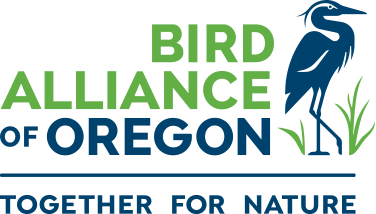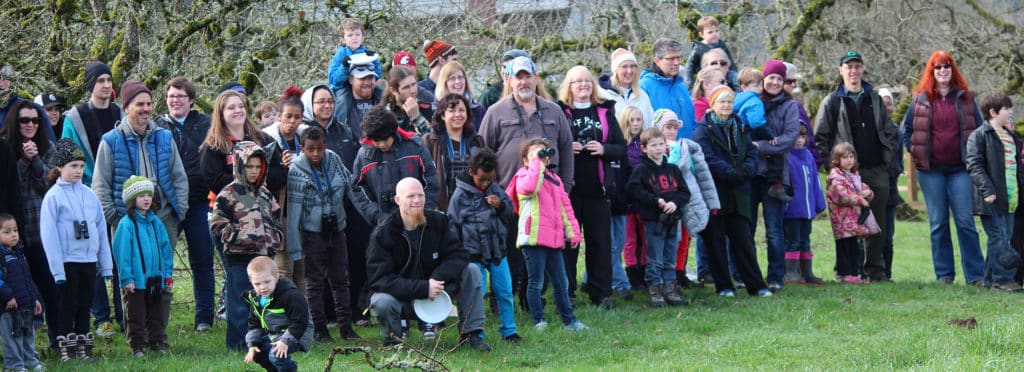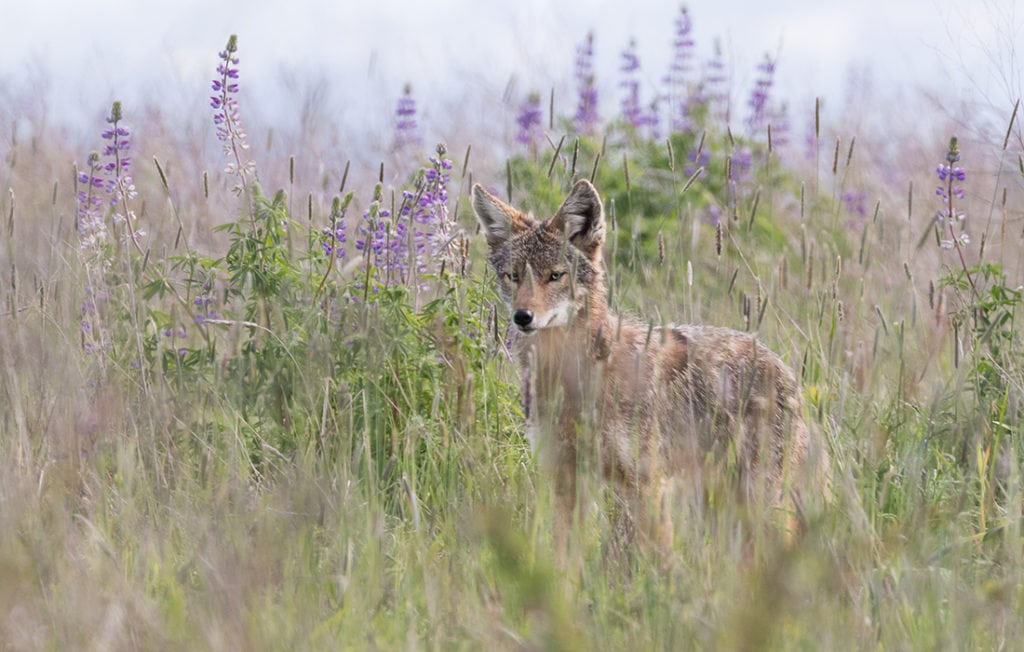“As a family, we talked a lot about this,” Kehoe shared. “We loved the property and felt that it would make a wonderful gift – not only to the Bird Alliance of Oregon, but as a permanent gift to the whole city.”
The Kehoes decided to protect the land permanently by donating it to Bird Alliance of Oregon — with the caveat that its remaining mortgage be paid off within the year. Bird Alliance of Oregon donors who care deeply about habitat helped raise the last $200,000 to ensure we could protect this land. That community support supplements the City’s investment.
Bordering Bird Alliance of Oregon’s Wildlife Sanctuary, the property is ecologically significant with the headwaters of Bones and Balch Creeks, wetlands, steep slopes and partially open canopy of both deciduous and coniferous trees. The property had long been seen by Bird Alliance of Oregon as one of the largest, most ecologically valuable and at-risk parcels on the periphery of Forest Park.
“We’ve fought to protect lands like this for over a century, and felt development would eventually happen if we didn’t act,” said Bird Alliance of Oregon Executive Director Nick Hardigg. “We also recognized that this would be one of the most valuable gifts to Bird Alliance of Oregon ever— worth millions— and we are incredibly grateful to the Kehoe family.”

Bird Alliance of Oregon is deeply grateful for this amazing gift, and the Kehoes – as sixth-generation Portlanders – are honored to be a part of the city’s rich history. The property will be renamed the “Katherine Lynn Kehoe Sanctuary” in honor of Marty Kehoe’s daughter Katie, who is an avowed environmentalist and nature advocate, and the family hopes that property will be enjoyed by residents and visitors of Portland for generations to come.
The acquisition of Pittock Place would not have been possible without support from the City of Portland Bureau of Environmental Services (BES), which recognized the importance of protecting the natural resource values of the site. The parcels contain the headwaters to Balch Creek, which hosts the healthiest population of native cutthroat trout in the city. BES data indicate a significant risk of instream erosion and landslides that could affect downstream water quality and habitat without stabilization. City ecologists observed indicators of unmapped drainages and wetlands throughout the property, which are very sensitive to development. BES provided $350,000 to purchase a conservation easement from Bird Alliance of Oregon thereby limiting potential future sale or development. BES also will provide up to $150,000 for restoration, which includes removing invasive plants and streambank stabilization to prevent erosion and protect water quality.
About Bird Alliance of Oregon’s 172-Acre Wildlife Sanctuary
Just 10 minutes from downtown Portland and free to the public, the 172-acre sanctuary is the perfect place for people of all ages to connect with nature. The public can visit the Wildlife Care Center, Nature Store, Interpretive Center, walk more than four miles of family-friendly trails to see old growth forest, a pond and streams, and take part in a multitude of educational classes and events. 40,000 people visit the wildlife sanctuary each year.
Bird Alliance of Oregon’s first land acquisition was in 1929, when 12 acres of a former dairy farm were purchased with private funds. The following year, the Pittock family donated another 18 acres. Additional land protections occurred in 1982 (the 34-acre Uhtoff Sanctuary), 1983, and 2008 (the 86-acre Collins Sanctuary, owned by Metro and managed by Bird Alliance of Oregon). This last gift of 22-acres from the Kehoe family brings the sanctuary to 172-acres. The Collins, Miller, Pittock, Kehoe and other families have all permanently attached their legacies to Bird Alliance of Oregon through generous acts to expand this special place and protect habitat for wildlife.
For more information, contact: Ali Berman, Communications Manager, aberman@birdallianceoregon.org, 971-222-6134








